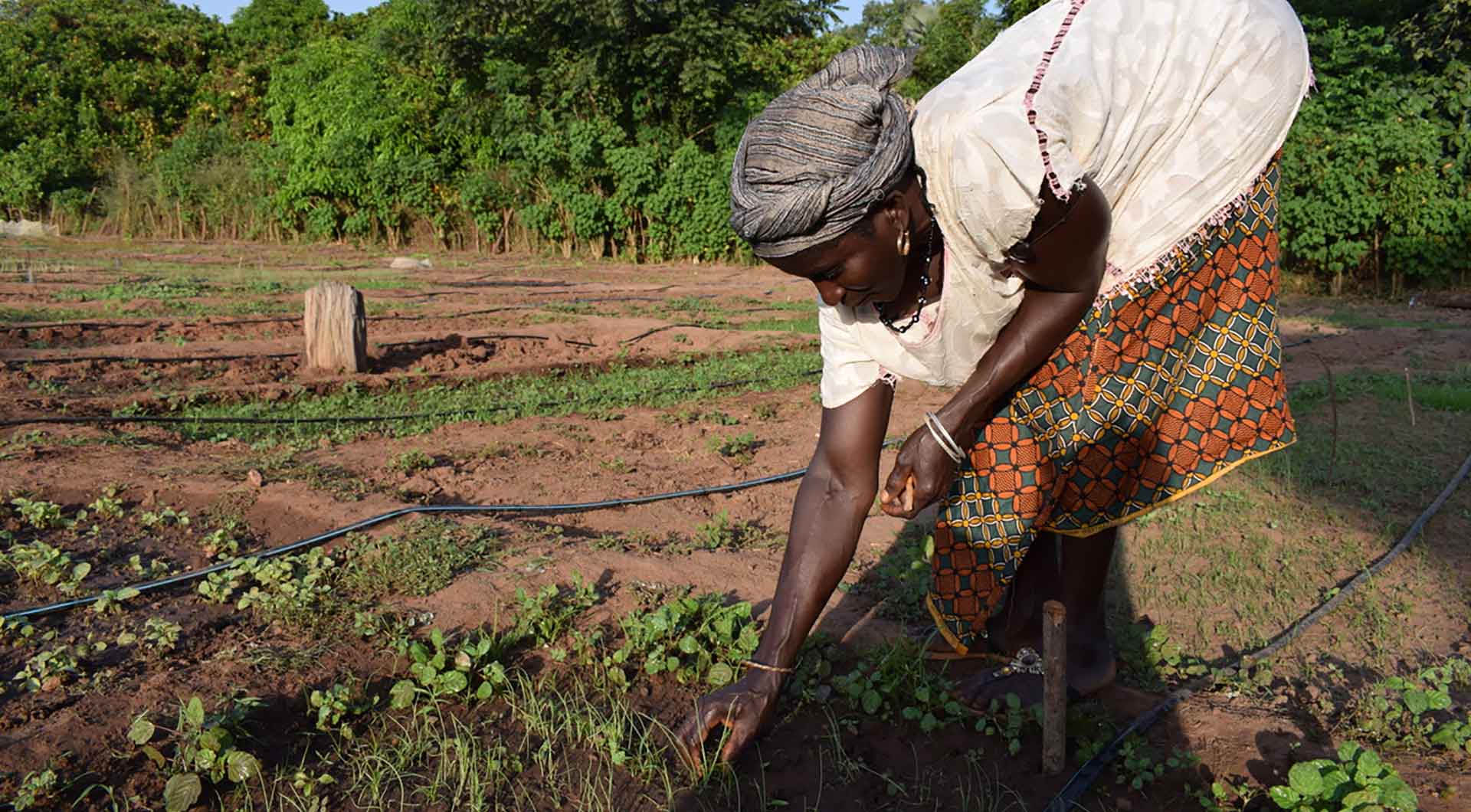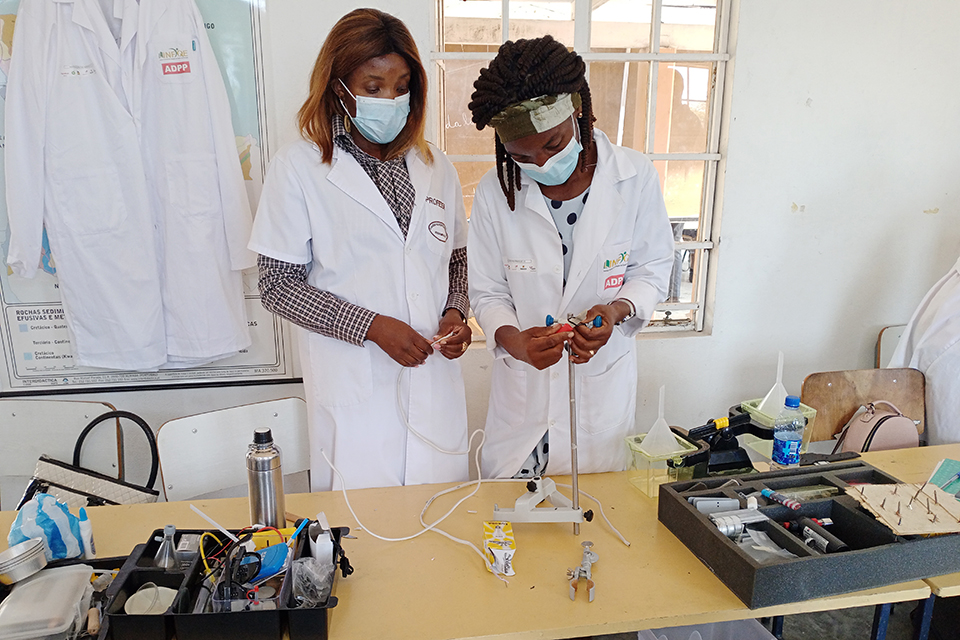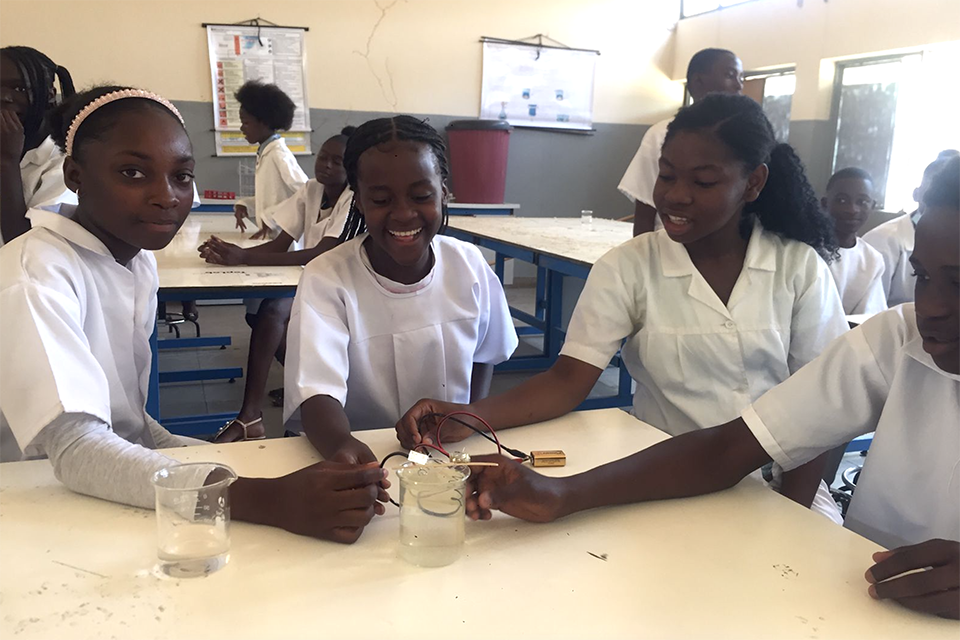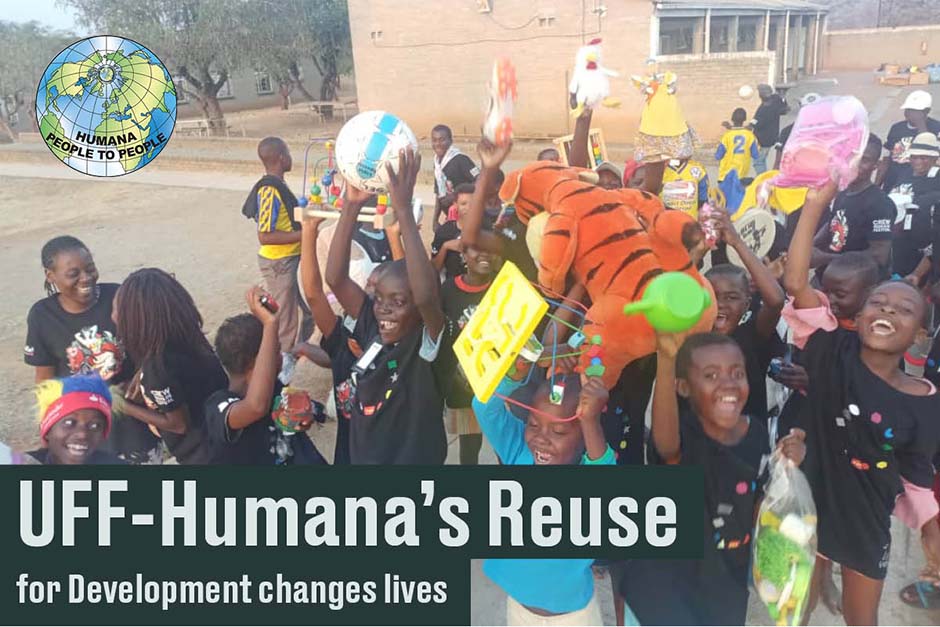
Strengthening STEM education through practical and inclusive education.

We are excited to commemorate International Day of Women and Girls in Science under the theme: “Women and Girls in Science Leadership, a New Era for Sustainability”, calling for action to close the gender gap in STEM which is key in preparing the next generation of women.
Humana People to People strives to close the gender gap in STEM through integrating STEM in its teacher training programmes. To promote more women and girls in STEM, we train female teachers in male dominated STEM subjects to provide on demand skills needed to deliver effective lifelong learning to students in rural areas.
We acknowledge women’s contribution in STEM is crucial if we want to achieve sustainable development. Therefore, we believe in girls having access to the same educational and training tools as their male counterparts and at the same time promoting a sense of belonging to the STEM revolution.
Our member, ADPP Angola has been carrying out the STEM project over the last five years in Angola. STEM project, is carried out together with the Ministry of Education’s National Institute for Teacher Training (INFQE) and the private sector to improve the teaching of science, technology, engineering and mathematics in schools.
STEM Education project is improving the education system in Angola because students remember what they are taught. The perspective and mindset about physics is changing. It’s transforming dislike into passion. There are now students who want to be teachers in the field of mathematics and physics. They want to get into science and engineering college. The vocation for physics is increasing as result of the project.
The project works with teachers selected by INFQE to become trainers. Teachers train for more than 400 hours of practical self-training. They learn to understand the subject matter through theory and experimentation, and they start to organize practical classes and encourage students to conduct experiments.
Practical STEM Education classes start at teacher training schools and then move on to teaching practice schools. ADPP Angola’s teacher training schools operate as resource centres in most of the provinces in Angola.
In primary education, sciences are considered as difficult subjects, but STEM Education makes teaching more interesting and changes the way of thinking about the task. Therefore, it is important to start STEM Education at primary school level and have continuous assessment.
STEM project proves that talking is not enough and all subjects can be learned in a more engaging way. This has pioneered more freedom of expression and discovery of science in Angolan schools where the project is carried out. Students are given the freedom to handle objects and do experiments which results in socializing with peers and making joint discoveries to build a sense of confidence in STEM subjects. The students become more confident and surer in what they are learning as well as not afraid and they are more relaxed.

Instead of identifying the best students in schools, STEM project uses teaching-learning strategy through STEM education to teach children by way of an inclusive approach, starting early in primary education. ADPP Angola tries to reach as many children as possible to build capacities in an ongoing way.
Manuals and a comprehensive training programme produced for primary and lower secondary education as part of the project has had a marked impact on teachers and students. Students increased understanding of the subjects, improved explanations and comprehension, linking theory with practical applications, developing collaboration and teamwork.
The most significant change resulting from the STEM Project is that now teachers
think about the practical component before preparing a lesson. They look for low-cost material for the practical classes and for experiments that makes the lessons more interesting and fun. Through Zones of Pedagogical Influence (ZIP) trainers meet twice a month to plan and exchange ideas facilitating the introduction of the STEM Project within the existing education system.
The STEM Project reached less than 10% of Luanda’s schools. In the first phase of the pilot
project, 85 trainers, 270 teachers and 7,000 students were reached with the guidance of STEM Education Teachers’ Manuals. The Ministry of Education intends to implement STEM in 7 or 8 schools in each of the 18 provinces of Angola. Trainers will be trained in STEM Education in each province. In another 4 or 5 years, ADPP Angola aims to have the STEM Education institutionalized within the Ministry of Education in Angola.
We would like to acknowledge the work ADPP Angola is carrying out in schools to have STEM Education integrated within the existing curriculum in Angola. Its increasing enthusiasm for students to develop interest in technical and engineering careers as a positive force for supporting Angola’s economy.
Humana People to People continues to work together with Ministries of Education, policy makers and partners to tackle barriers in STEM education limiting the ability to harness talents in women to fight for inclusive and sustainable solutions to build a better society for all.


